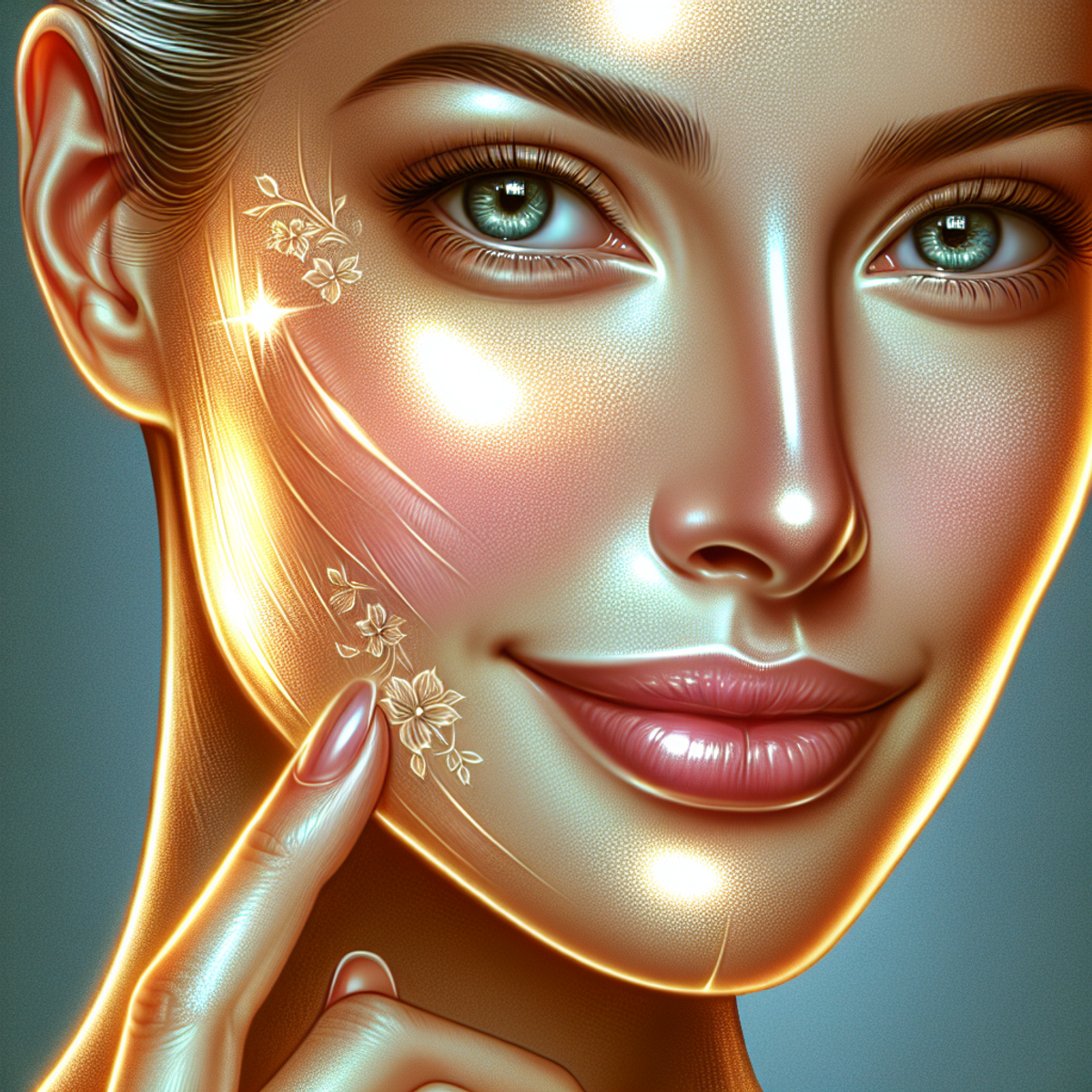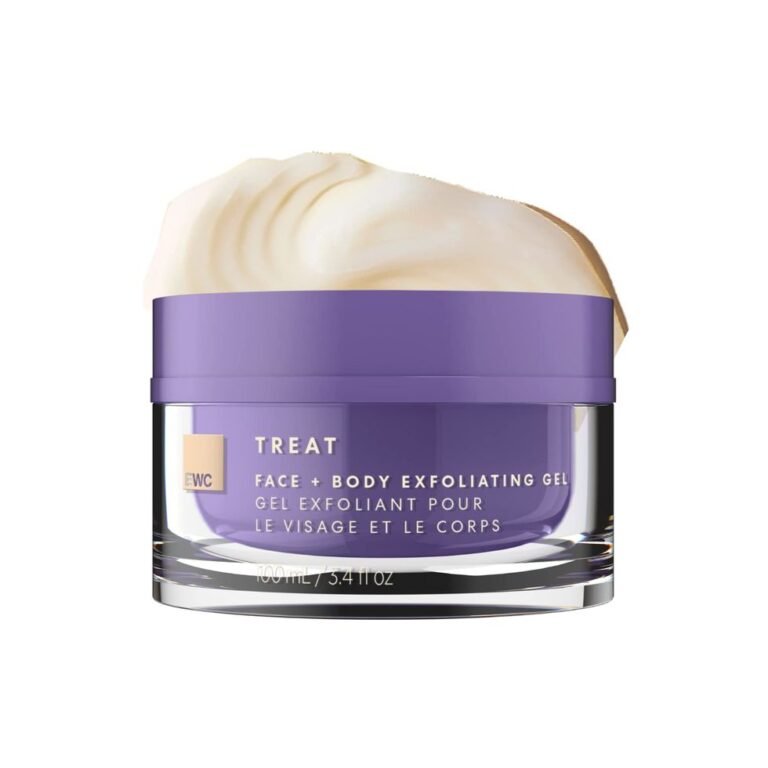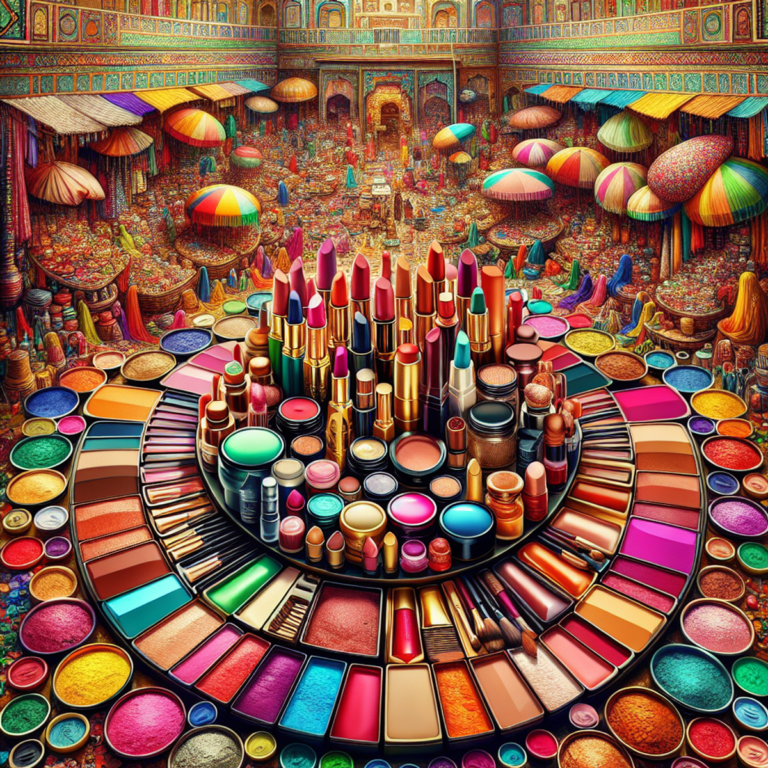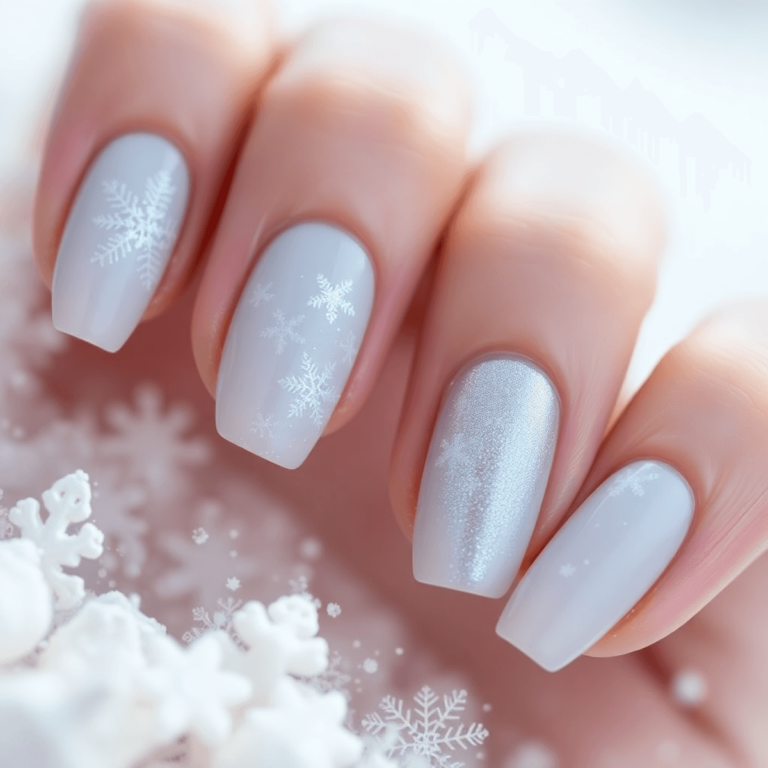Glowing skin is always in: the skincare market in the US

Introduction
The skincare market in the US is thriving, with a projected annual growth rate and revenue amounting to US$19.92 billion in 2022[^1^]. This upward trend can be attributed to several factors, including:
- The growing desire for health-promoting and self-care products
- Increasing interest in regimens and routines
- The influence of social media in informing consumers and driving product discovery
Having a skincare routine is not just a fleeting trend; it is essential for achieving and maintaining glowing skin. A well-rounded skincare routine can help address common skin concerns such as:
- Dryness
- Aging
- Oil production
- Acne
- Blackheads
- Dullness
It plays a vital role in nourishing and protecting the skin from environmental stressors while promoting a healthy complexion.
Investing time and effort into a skincare routine yields numerous benefits. Not only does it enhance the appearance of your skin, but it also contributes to overall skin health. A consistent skincare regimen helps:
- Improve skin texture
- Minimize the appearance of pores
- Promote an even skin tone
- Reduce the signs of aging
Moreover, taking care of your skin goes beyond just aesthetics. It is an act of self-care that allows you to prioritize your well-being and indulge in a moment of relaxation and rejuvenation. The ritualistic nature of skincare routines can have a positive impact on mental health by providing a sense of control and mindfulness.
In this article, we will explore:
- The growing demand for skincare products in the US
- Key skincare concerns driving product innovation
- Must-have skincare products for a glowing skin routine
- The power of active ingredients in skincare formulations
- Innovations in skincare packaging
- The influence of social media and influencer marketing on skincare trends
- The Korean skincare phenomenon
So let’s dive deeper into the world of skincare and discover how you can achieve that coveted glow!
The Growing Demand for Skincare Products in the US
The skincare market in the US has experienced a remarkable surge in demand lately. This surge can be attributed to several factors, including changing beauty trends, the impact of social media, and the influence of the pandemic on consumer behavior.
The shift in consumer preference from makeup to skincare
In the past, makeup was primarily used to enhance appearance or conceal imperfections. However, there has been a noticeable shift towards prioritizing skincare as the foundation for healthy and radiant skin. Many consumers now understand that investing in skincare can have long-term benefits by improving the overall health and appearance of their skin.
- Skincare has become a form of self-care and a way to prioritize wellness. It is seen as an essential part of a daily routine rather than just a luxury or occasional indulgence.
- The growing popularity of natural and clean beauty products has also contributed to the rise in demand for skincare. Consumers are becoming more conscious about what they put on their skin and are seeking out products with ingredients that are perceived as safe and effective.
Influence of the pandemic on the booming skincare industry
The COVID-19 pandemic has had a significant impact on consumer behavior, including how they approach beauty and skincare. With people spending more time at home and wearing less makeup due to mask-wearing requirements, there has been a renewed focus on taking care of one’s skin.
- The pandemic has given individuals an opportunity to reassess their priorities and invest in self-care activities, with skincare being an accessible and affordable option.
- Additionally, increased stress levels during this challenging time have led many people to find comfort in self-care routines, further increasing the demand for skincare products.
Promising growth projections for the future of the skincare market
The skincare market in the US is expected to continue growing. According to market research, the revenue in the skincare segment is projected to reach US$19.92 billion by 2022.
- Factors such as the growing desire for health-promoting products, increasing interest in regimens and routines, and the influence of social media are expected to contribute to this growth.
- Skincare is now appealing to people of all ages and genders, with men also showing a greater interest in skincare and makeup products. This expanding target market presents significant opportunities for brands to cater to diverse consumer needs.
The growing demand for skincare products in the US shows a shift towards prioritizing self-care and overall skin health. As consumers become more knowledgeable about the benefits of a regular skincare routine, they are increasingly looking for effective products that target their specific concerns. This article provides insights into some of the trends shaping the future of the skincare industry, which can help brands stay ahead in this rapidly evolving market.
Key Skincare Concerns Driving Product Innovation
Overview of Common Skin Concerns Among American Consumers
American consumers have a range of skincare concerns that drive the demand for innovative skincare products. These concerns include:
- Dryness: Many individuals experience dry skin due to factors such as weather conditions, environmental exposure, and aging. Dry skin can lead to discomfort, flakiness, and a dull complexion.
- Aging: As individuals age, they often become concerned about signs of aging such as wrinkles, fine lines, and loss of elasticity. Anti-aging products are in high demand to address these concerns and promote youthful-looking skin.
- Oil Production: Excess oil production can lead to oily or combination skin, which can result in clogged pores, acne breakouts, and a shiny complexion. Individuals with oily skin often seek products that can regulate oil production and control shine.
- Acne: Acne is a common skin concern among Americans of all ages. It can be caused by various factors such as hormonal changes, stress, diet, and genetics. Skincare products with ingredients like salicylic acid and benzoyl peroxide are popular choices for treating acne-prone skin.
- Blackheads: Blackheads are a type of acne lesion caused by clogged hair follicles. They appear as small, dark bumps on the skin’s surface and can be challenging to eliminate. Many consumers look for skincare products that can effectively unclog pores and reduce the appearance of blackheads.
- Dullness: Dull skin lacks radiance and appears lackluster or tired. Factors such as pollution, stress, lack of sleep, and poor skincare habits can contribute to dullness. Skincare products containing brightening ingredients like vitamin C or exfoliating acids are sought after to achieve a more radiant complexion.
How Skincare Products Address Specific Concerns
Skincare products are formulated with targeted ingredients to address the specific concerns mentioned above. Here are some examples:
- Hydrating ingredients: Products designed for dry skin often contain ingredients like hyaluronic acid, glycerin, and ceramides to provide intense hydration and restore the skin’s moisture barrier.
- Anti-aging ingredients: Skincare products targeting aging concerns may include ingredients such as retinol, peptides, and antioxidants to reduce the appearance of wrinkles, improve skin texture, and promote collagen production.
- Oil-controlling ingredients: Skincare products for oily or combination skin may contain oil-absorbing ingredients like clay, niacinamide, or witch hazel to help regulate sebum production and minimize shine.
- Acne-fighting ingredients: Skincare products formulated for acne-prone skin often feature active ingredients like salicylic acid, benzoyl peroxide, or tea tree oil to unclog pores, reduce inflammation, and kill acne-causing bacteria.
- Exfoliating ingredients: Products targeting blackheads and dullness may contain exfoliating agents like alpha-hydroxy acids (AHAs) or beta-hydroxy acids (BHAs) to remove dead skin cells and unclog pores, revealing a smoother and brighter complexion.
By understanding their specific skincare concerns and choosing products that address those concerns, American consumers can build an effective skincare routine tailored to their needs. It’s important to note that individual preferences and skin types can vary, so it’s advisable to consult with a dermatologist or skincare professional for personalized recommendations.
Must-Have Skincare Products for a Glowing Skin Routine
Skincare is all about taking care of your skin and giving it the love and attention it deserves. To achieve that coveted glowing skin, it’s essential to have a well-rounded skincare routine that addresses your specific needs. Here are some must-have skincare products that should be a part of your daily regimen:
1. Cleansers
Cleansing is the first and arguably the most important step in any skincare routine. A good cleanser helps remove dirt, oil, and impurities from your skin, leaving it fresh and clean. Some key functions of a cleanser include:
- Removing makeup: Cleansers effectively remove all traces of makeup, allowing your skin to breathe and preventing clogged pores.
- Unclogging pores: Cleansers help eliminate dirt and excess oil that can lead to breakouts or blackheads.
- Balancing pH levels: A gentle cleanser can help maintain the natural pH balance of your skin, keeping it healthy and hydrated.
When choosing a cleanser, consider your skin type:
- Dry skin: Look for creamy or lotion-based cleansers that provide extra hydration.
- Oily skin: Opt for gel or foam cleansers that help control excess oil production.
- Combination skin: Choose a cleanser that strikes a balance between removing oil and hydrating dry areas.
2. Face Moisturizers
Hydration is key to achieving radiant and glowing skin. Face moisturizers play a crucial role in maintaining the moisture barrier of your skin, preventing dryness and promoting overall skin health. Some key functions of face moisturizers include:
- Hydrating the skin: Moisturizers replenish moisture and lock it in, keeping your skin soft and supple.
- Improving texture: Regular use of moisturizers can improve the texture of your skin, making it smoother and more even-toned.
- Providing essential nutrients: Many moisturizers contain ingredients like antioxidants and vitamins that nourish and protect your skin.
When selecting a face moisturizer, consider your skin type:
- Dry skin: Look for rich and creamy moisturizers that provide intense hydration.
- Oily skin: Opt for lightweight, oil-free moisturizers that won’t clog pores or feel heavy on the skin.
- Combination skin: Choose a moisturizer with a balanced formula that addresses both dry and oily areas.
3. Sunscreen or SPF
Sun protection is crucial for maintaining healthy and glowing skin. Sunscreen or SPF (Sun Protection Factor) products shield your skin from harmful UV rays, preventing sunburn, premature aging, and even skin cancer. Some key functions of sunscreen or SPF include:
- Protecting against UV damage: Sunscreens create a barrier on your skin that reflects or absorbs UV rays, preventing them from causing harm.
- Preventing photoaging: Exposure to the sun’s rays can lead to wrinkles, fine lines, and dark spots. Sunscreens help minimize these signs of aging.
- Lowering the risk of skin cancer: Prolonged exposure to the sun without protection increases the risk of developing various types of skin cancer.
When choosing a sunscreen or SPF product, consider the following factors:
- Sun Protection Factor (SPF): Opt for a broad-spectrum sunscreen with an SPF of 30 or higher to ensure adequate protection against both UVA and UVB rays.
- Formulation: Look for a sunscreen that suits your preferences, whether it’s a lotion, cream, gel, or spray.
- Skin sensitivity: If you have sensitive skin, opt for sunscreens labeled as “hypoallergenic” or “gentle” to minimize the risk of irritation.
4. Face Masks
Face masks are an indulgent treat for your skin and can provide targeted treatments for specific concerns. They offer various benefits such as deep hydration, brightening, soothing, and purifying. Some key benefits of using face masks include:
- Hydrating and nourishing the skin: Face masks packed with moisturizing ingredients can provide an extra boost of hydration to dry or dehydrated skin.
- Addressing specific skin concerns: Different face masks target various issues like acne, dullness, uneven texture, or hyperpigmentation.
- Relaxation and self-care: Applying a face mask can be a therapeutic experience, allowing you to take a few moments to unwind and pamper yourself.
There are different types of face masks available:
- Sheet masks: These pre-cut masks are soaked in serum and come in individual packets. They are easy to use and provide instant hydration.
- Clay masks: Ideal for oily or acne-prone skin, clay masks help absorb excess oil and unclog pores.
- Overnight masks: These leave-on masks work overnight to deeply nourish and repair your skin while you sleep.
5. Eye Creams
Taking care of the delicate skin around your eyes is crucial for maintaining a youthful appearance. Eye creams offer targeted care for reducing puffiness, dark circles, fine lines, and wrinkles. Some key benefits of using eye creams include:
- Moisturizing and hydrating: The skin around the eyes is thinner and more prone to dryness. Eye creams provide much-needed moisture to keep it plump and supple.
- Reducing signs of aging: Ingredients like peptides and retinol found in eye creams can help minimize fine lines, crow’s feet, and wrinkles.
- Brightening the under-eye area: Eye creams containing brightening agents like vitamin C or kojic acid can help diminish dark circles and give your eyes a refreshed appearance.
When choosing an eye cream, consider your specific concerns:
- Anti-aging: Look for eye creams with ingredients like retinol or hyaluronic acid to target fine lines and wrinkles.
- Dark circles: Opt for eye creams that contain brightening agents such as vitamin C or niacinamide to help reduce discoloration.
- Puffiness: Eye creams with cooling ingredients like cucumber extract or caffeine can help reduce puffiness and soothe the under-eye area.
Taking care of your skin goes beyond just using skincare products. It’s important to remember that consistency is key, and finding the right products that suit your specific needs and concerns can make a significant difference in achieving and maintaining glowing skin.
2. Face Moisturizers
A face moisturizer in a skincare routine has several key functions:
- Providing essential hydration to the skin
- Locking in moisture
- Creating a protective barrier against environmental stressors
Why Face Moisturizers Are Important
- Maintaining Skin’s Natural Balance: A good face moisturizer helps keep the skin’s moisture levels in check, preventing it from getting too dry or too oily.
- Supporting Skin’s Regeneration: It also aids in the skin’s natural healing and renewal process, leading to a healthier and more radiant complexion.
When choosing a face moisturizer, it’s crucial to consider:
- Your skin type
- Specific concerns you may have
Here are some guidelines based on different skin types:
For Dry Skin
Look for rich and creamy formulations with ingredients like hyaluronic acid and glycerin for intense hydration.
For Oily or Acne-Prone Skin
Opt for oil-free, non-comedogenic moisturizers that won’t clog pores.
For Combination Skin
Choose a lightweight yet hydrating moisturizer that balances dry and oily areas.
For Sensitive Skin
Go for fragrance-free and hypoallergenic options to minimize potential irritation.
In addition to cleansing, face moisturizers play a crucial role in maintaining skin health by ensuring adequate hydration. When used in conjunction with cleansers, they help in balancing the skin’s natural oils and preventing dryness or excessive oiliness.
The right face moisturizer can make a significant difference in the overall health and appearance of your skin. By understanding your skin type and its specific needs, you can select a moisturizer that not only hydrates but also addresses other concerns such as aging, sensitivity, or uneven texture.
3. Sunscreen or SPF
Key functions of a sunscreen or SPF product in a skincare routine
Sunscreen or SPF plays a crucial role in any skincare routine, serving as a protective barrier against harmful UV rays. Its primary function is to shield the skin from sun damage, preventing premature aging, hyperpigmentation, and reducing the risk of skin cancer.
Overview of different types of sunscreen and SPF products available and how to choose the right one for your needs
When choosing a sunscreen or SPF product, consider factors such as your skin type, activities you’ll be engaging in, and the level of sun exposure. There are various types available:
- Chemical sunscreens that absorb UV rays
- Physical sunscreens that create a barrier on the skin
Look for broad-spectrum protection with an SPF of at least 30 for daily use. Water-resistant formulas are essential for outdoor activities or if you have oily skin.
Incorporating sunscreen or SPF into your skincare routine is vital for overall skin health and should be applied as the final step in the morning regimen. By selecting the right product and using it consistently, you can effectively safeguard your skin from damage caused by UV radiation while maintaining a healthy, glowing complexion.
4. Face Masks
Face masks are a popular addition to skincare routines due to their ability to provide targeted treatments and address specific skin concerns. They offer a range of benefits that can contribute to achieving and maintaining glowing skin. Here are some key points to consider:
Addressing specific skin concerns
Face masks are known for their ability to target specific skin concerns. They can help with issues such as dryness, dullness, acne, and uneven skin tone. Different face masks are formulated with specific ingredients to address these concerns effectively. According to Healthline, the effectiveness of face masks largely depends on the ingredients used and the individual’s skin type.
Hydration and nourishment
Many face masks are designed to provide intense hydration and nourishment to the skin. They often contain ingredients like hyaluronic acid, glycerin, or natural oils that help replenish moisture and improve the skin’s overall texture and appearance. WebMD explains how these ingredients work together in face masks to enhance hydration and promote healthy-looking skin.
Deep cleansing
Some face masks have deep-cleansing properties, which can be beneficial for those with oily or congested skin. These masks often contain ingredients like clay or activated charcoal that help draw out impurities, unclog pores, and absorb excess oil. This article by Gray Group International explores the benefits of deep-cleansing face masks in more detail.
Enhanced absorption of other skincare products
Applying a face mask before using other skincare products can enhance their absorption into the skin. The mask helps create a clean canvas by removing dead skin cells and impurities, allowing subsequent products like serums or moisturizers to penetrate more effectively. Herbalife highlights the role of face masks in optimizing the efficacy of other skincare products.
When it comes to choosing a face mask, there is a wide variety available in the market. Here are some common types and when to use them:
Sheet masks
These are pre-cut masks soaked in a serum or essence. They come in individual packages and are typically made of materials like cotton or hydrogel. Sheet masks are convenient to use and provide instant hydration and nourishment. They are suitable for all skin types and can be used as a quick pick-me-up or before special occasions.
Clay masks
Clay masks are excellent for deep cleansing and purifying the skin. They contain ingredients like kaolin or bentonite clay, which help absorb excess oil and draw out impurities. Clay masks are ideal for those with oily or acne-prone skin. They can be used once or twice a week.
Gel masks
Gel masks have a lightweight, gel-like consistency and are great for hydrating and soothing the skin. They often contain ingredients like aloe vera or cucumber extract, which provide a cooling effect and help calm irritated or sensitive skin. Gel masks are suitable for all skin types and can be used as needed.
Sleeping masks
Sleeping masks are applied before bedtime and left on overnight to provide intense hydration and nourishment while you
5. Eye Creams
Eye creams are an important part of a complete skincare routine, especially for taking care of the sensitive skin around your eyes. They offer many advantages, such as addressing under-eye concerns and minimizing signs of aging.
Key Benefits of Using Eye Creams:
- Under-eye Care: The skin around your eyes is thinner and more delicate than the rest of your face. This makes it prone to dryness, puffiness, and dark circles. Eye creams are specifically designed to target these issues by providing intense hydration and nourishment. They can help combat dryness, reduce puffiness, and minimize the appearance of dark circles, giving your eyes a brighter and more refreshed look.
- Reducing Signs of Aging: The eye area is often where you first notice signs of aging like fine lines, wrinkles, and crow’s feet. Using eye creams that contain anti-aging ingredients such as peptides, retinol, or hyaluronic acid can help smooth out these lines, firm up the skin around your eyes, and make you look more youthful.
Types of Eye Creams and How to Use Them:
There are different types of eye creams available to address specific skincare concerns. When choosing an eye cream, think about what you want to achieve (e.g., hydration, anti-aging) and look for ingredients that target those concerns. Here are some common types:
- Hydrating Eye Creams: These are great if you have dry or dehydrated skin around your eyes. Look for ingredients like hyaluronic acid or ceramides that deeply moisturize and help retain moisture.
- Anti-Aging Eye Creams: If your main goal is to reduce signs of aging, go for eye creams with powerful anti-aging ingredients like retinol or peptides. These ingredients can boost collagen production, improve elasticity, and minimize the appearance of fine lines and wrinkles.
- Brightening Eye Creams: Dark circles can make you look tired and dull. Brightening eye creams containing ingredients like vitamin C or niacinamide can help fade dark circles and even out your skin tone for a more radiant look.
To use eye creams properly:
- Take a small amount of eye cream on your ring finger.
- Gently pat the product around your eye socket, starting from the inner corner and moving outward.
- Avoid applying too close to your lash line to prevent any irritation.
Pro Tip: Use your ring finger because it applies the least amount of pressure, which is important for the delicate skin around your eyes.
Remember to use eye creams consistently for best results. Make them a part of your morning and evening skincare routines.
Why You Need Eye Creams in Your Skincare Routine
Eye creams, along with cleansers, face moisturizers, sunscreen or SPF, and face masks, form an essential part of a complete skincare regimen. Each product category serves a specific purpose in achieving healthy and glowing skin.
The Power of Active Ingredients in Skincare
Active ingredients in skincare products are components that have been scientifically proven to directly and visibly impact the skin. These ingredients are crucial because they determine how well skincare products work. Whether it’s targeting specific skin issues or improving overall skin health, active ingredients are essential for creating effective skincare products.
Why Active Ingredients Matter
- They make skincare products work: Active ingredients are responsible for the main effects of a skincare product, such as reducing wrinkles or brightening the skin. Without these ingredients, a product would just be a basic moisturizer or cleanser.
- They provide targeted solutions: Different active ingredients have different benefits for the skin. Some may be great for acne-prone skin, while others are better at reducing dark spots. By choosing products with specific active ingredients, you can address your unique skincare needs.
- They offer visible results: Thanks to their potent properties, active ingredients can deliver noticeable improvements to the skin. Whether it’s smoother texture, brighter complexion, or reduced signs of aging, these ingredients can help you achieve your desired skincare goals.
Popular Active Ingredients and Their Benefits
Here are some well-known active ingredients in skincare and what they can do for your skin:
- Vitamin E: Known for its antioxidant properties, Vitamin E helps protect the skin from free radicals and UV damage. It also supports the skin’s natural barrier function, promoting moisture retention and overall skin health.
- Vitamin C: A potent antioxidant, Vitamin C brightens the skin, reduces hyperpigmentation, and stimulates collagen production. It also helps in protecting the skin from environmental stressors and reducing signs of aging.
- Collagen: As a key structural protein in the skin, collagen contributes to its firmness and elasticity. Skincare products containing collagen aim to promote skin suppleness and reduce the appearance of fine lines and wrinkles.
These active ingredients have been extensively studied and proven effective in addressing various skincare concerns, making them highly sought after in skincare formulations.
Innovations in Skincare Packaging
Packaging design is crucial in the beauty industry because it’s the first thing consumers see when they encounter skincare products. Besides keeping the product safe, packaging is also a powerful way to grab attention and show what a brand stands for. Here are some important things to know about innovations in skincare packaging:
Why Packaging Design Matters
- Packaging design shows a brand’s identity and values. It helps people remember and recognize the brand.
- Using attractive colors, unique shapes, and interesting pictures can make skincare brands stand out among many other options.
- Well-designed packaging can create emotions, connect with consumers, and explain why the product is good.
New Ideas for Eco-Friendly Packaging
- Many skincare brands now use packaging that’s better for the environment because people care more about sustainability.
- They choose materials like recycled paper, glass, bamboo, or plastics that break down easily.
- Some brands also offer refills instead of making people buy new containers every time they run out. This reduces waste from packaging a lot.
- Another trend is using simple designs that don’t need much material. This makes the packaging look clean and classy while reducing waste.
Making Skincare Packaging Practical
- Good skincare packaging doesn’t just look nice; it’s also easy to use.
- Bottles with pumps or containers that don’t let air and light inside keep active ingredients strong for longer.
- Dropper bottles are common for serums or oils because they give precise amounts without letting dirt get in.
- Some products have their own tools attached, like brushes or applicators, so people can use them correctly.
In conclusion, packaging design is very important for grabbing attention and showing what a brand believes in when it comes to skincare. Skincare companies are now using more eco-friendly materials and designs to reduce waste and meet customers’ expectations for sustainable products. They’re also making sure their packaging is practical and easy to use so that people can enjoy the products without any trouble.
Sources:
- https://www.cosmeticsdesign.com/Article/2021/02/10/Sustainable-packaging-trends-to-watch-in-2021
- https://www.packagingstrategies.com/articles/95628-skin-care-packaging-design-trends-for-2021
The Influence of Social Media and Influencer Marketing on Skincare Trends
Social media platforms have become powerful tools in shaping beauty standards and driving product discovery. Platforms like Instagram, TikTok, YouTube, and Pinterest have revolutionized the way people consume and interact with skincare content. Here’s a closer look at the impact of social media and influencer marketing on skincare trends:
1. Shaping Beauty Standards
Social media has played a significant role in redefining beauty standards. Influencers and users are embracing authenticity and promoting inclusivity, challenging traditional notions of beauty. Skincare routines and transformations showcased on these platforms have inspired individuals to prioritize self-care and embrace their natural skin.
Did you know? In 2020, the hashtag #skincare reached over 1.5 billion views on TikTok, highlighting the immense popularity of skincare-related content on the platform.
2. Driving Product Discovery
Social media has made it easier than ever for consumers to discover new skincare products. Influencers share their honest reviews, demonstrations, and before-and-after results, allowing their followers to make informed decisions about which products to try. Skincare brands have also leveraged social media platforms to showcase their products through visually appealing content and engaging storytelling.
Example: Drunk Elephant, a popular skincare brand, gained traction through social media by leveraging user-generated content. Their #barewithus campaign encouraged users to share unedited photos of their skin using Drunk Elephant products, creating a sense of community while showcasing the effectiveness of their products.
3. Success Stories with Influencer Marketing
Influencer marketing has become an integral part of skincare brand strategies. Collaborating with influencers allows brands to tap into their loyal following and establish trust with potential customers. Skincare brands often send products to influencers for review or sponsor collaborations such as tutorials or challenges that generate buzz around their products.
Case Study: Glossier is a prime example of a skincare brand that successfully utilized influencer marketing. They collaborated with influencers to create a community-driven approach, encouraging users to share their Glossier products and experiences on social media. This strategy not only boosted brand awareness but also fostered a sense of belonging among Glossier’s customers.
By harnessing the power of social media and influencer marketing, skincare brands have effectively engaged with their target audience, built brand loyalty, and influenced consumer behavior. As the skincare market continues to evolve, we can expect social media platforms to play an even more significant role in shaping skincare trends and driving product innovation. So keep an eye on your favorite influencers for the latest skincare tips and product recommendations!
Pro Tip: When following skincare influencers, it’s important to remember that everyone’s skin is unique. What works for them may not work for you. Use their recommendations as a starting point and consult with a dermatologist or skincare professional for personalized advice tailored to your specific needs.
Taking Inspiration from the Korean Skincare Phenomenon
The Korean skincare routine has gained a lot of attention for its multi-step approach and focus on achieving healthy, glowing skin. This popular routine usually consists of 10 steps, with each step serving a specific purpose in taking care of the skin. However, it is important to note that not everyone may have the time or preference for the full 10 steps.
For instance, a customizable Korean skincare routine can be tailored to fit different skin types and lifestyles. This flexibility allows individuals to pick and choose specific steps that work best for them, as well as adjust the number of steps based on their skin’s needs at any given time. This adaptability ensures a personalized approach to skincare.
At its core, the Korean skincare phenomenon promotes a holistic view of self-care that goes beyond just applying products. It emphasizes regular self-care practices done with intention, making it more than just a mundane chore. Instead, it encourages individuals to see skincare as an essential part of nurturing themselves overall. This mindset shift towards mindfulness and self-nurturing helps foster a deeper appreciation for the ritual of caring for one’s skin, as highlighted in this study on skincare habits.
By incorporating elements from the Korean skincare routine into their own regimens, individuals can benefit from its preventive philosophy and tailored adaptability, ultimately working towards achieving glowing and healthy skin in the long run.
Embracing a Bright Future for the US Skincare Market
Prioritizing Self-Care Through a Personalized Skincare Routine
Take the time to understand your skin’s unique needs and invest in a skincare routine that works for you. Prioritizing self-care through a personalized skincare routine can have a significant impact on your overall well-being and confidence. By adopting healthy skincare habits, you not only promote glowing skin but also cultivate a sense of mindfulness and self-nurturing.
Seeking Professional Advice for Serious Skin Issues
While establishing a skincare routine is essential, it’s crucial to seek professional advice for serious skin issues. Consulting dermatologists or skincare experts can provide valuable insights into addressing specific concerns and maintaining skin health. Don’t hesitate to reach out for professional guidance when needed, as it can make a substantial difference in achieving your skincare goals.
The Future Potential of the Skincare Market in the US
As we look ahead, the future of the skincare market in the US holds immense potential for innovation and inclusivity. With evolving consumer preferences and advancements in research, we anticipate a surge in groundbreaking skincare products tailored to diverse skin types and concerns. The industry’s commitment to inclusivity will continue to drive the development of products that cater to a wide range of individuals, embracing diversity and celebrating individual beauty.










